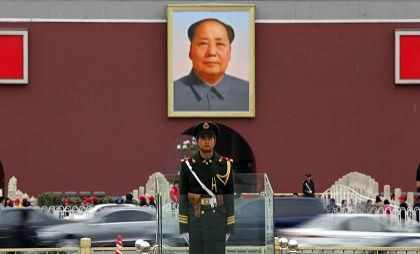Rumors Of Developing 'Secondary' Capital City In Baoding Shot Down By Chinese Officials

Two and a half hours outside of Beijing lies the unassuming city of Baoding. The 2-million-strong city is virtually unheard of outside China, and known by locals mostly as a place to get a mean donkey burger. But a report by the state-owned economics journal Caijing claims that Baoding could soon be made into a supplementary national capital to Beijing.
According to Caijing, government bodies in Beijing, Tianjin and Hebei have agreed to develop Baoding as an auxiliary central government center. Caijing reported that Baoding would be marketed as a “secondary political center” with various arms of the government moving there at an undetermined date.
Chinese officials quickly denied the report as a false Internet rumor. Liu Feng, a spokesman for the Baoding municipal government, told the Beijing Times he had never heard such talk of decentralizing China’s government to Baoding and only saw reports circulating online.
While the rumors were shot down as quickly as they came up, the state-owned Global Times said Baoding makes a compelling argument for taking on some of Beijing’s functions. It is at the center of Hebei province, and is equidistant from Beijing and Tianjin, a city that is already one of five national central cities, and is also the halfway point to Hebei’s capital city of Shijiazhuang. The location between major financial and economic hubs would likely allow the whole province of Hebei to prosper, Caijing said.
Though other outlets have reported that some state-funded educational institutions and scientific research centers had already been moved to Baoding, this is the first mention of a coordinated government transfer.
According to the Global Times, the news made stocks for local enterprises, like the Baoding-based car company Great Wall Motors, surge on Wednesday.
As Beijing continues its urban sprawl, building out its ring-road system to cover more and more land, it's hard to argue that the city of 21 million people couldn't use some extra room. But on the popular microblog platform Weibo, it was mainly people from Beijing who spoke out against to the rumored change. "This is not the 'Chinese Dream' I had in mind," one blogger said, invoking President Xi Jinping's commonly used phrase. "Not all reform is good."
© Copyright IBTimes 2024. All rights reserved.






















